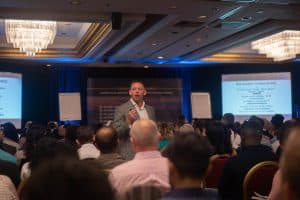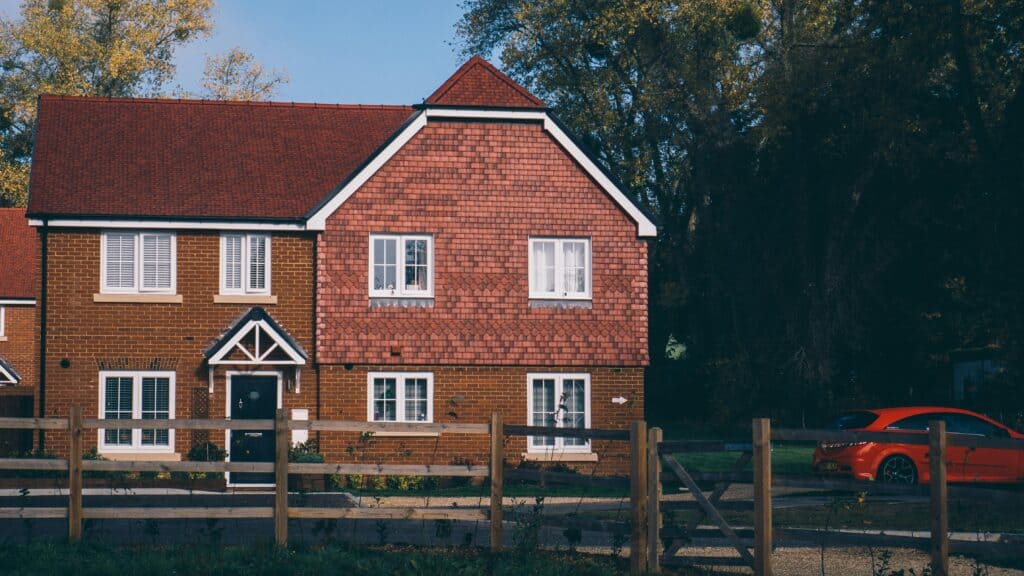
Best Property Investment Courses in the UK
Discover top-rated UK property investment events, bootcamps, and mentors, including Martin Roberts, Stuart and Scarlette

Finding out what year your house was built and other details about the property’s history can be fascinating, and also useful. When taking out insurance on the property, you will need to know its exact age. But how can you find out exactly how old your house is? In this guide, I will detail exactly how you can find out how old your house is, plus other ways of looking into the history of a property in the UK.
Table of Contents
ToggleThere are a few ways of finding out the year that your house was built, including reading the title deeds, checking the survey documents, or searching for your house in the HM Land Registry. When you first purchased the property, you should have been given the title deeds as proof of ownership. These will contain part information about the property including the year it was built. If you do not have the title deeds for some reason, you can get them from the HM Land Registry website – start by entering the postcode and selecting the address. You can view documents including title deeds plus any easements or restrictive covenants online, and download a copy for £3.
Sometimes, the HM Land Registry will not have the exact year of construction and may give an approximate range like ‘built between 1930 -1949’ or not list any dates at all. If this is the case for your house, you can contact your local authority to find out more. They often hold information about property in the local area including planning permission documents, which could include the year of construction for your home.
If you are in the process of buying a property, the year it was built should be easy to find out. Check the home survey and mortgage offer which should include the age of the property. You could also ask the seller or their agent if they know the year of construction.
If the property is very old, i.e. built pre-1850, the age of the house and other details may not be so readily available. In this case, you can look for it in your local archives or local library. They will hold information such as old parish records, ordnance survey maps and country office records which can help you determine the age of your house. If there are no archival records available in your local area, you can look online at the National Archives. You can also check the 1862 Land Act Register, which was the UK Government’s first attempt at recording information about property ownership.
A restrictive covenant is a binding condition included in a property’s title deeds that stipulates what a future homeowner can or cannot do with the property. They usually define things like preventing future owners from altering the property e.g. turning a larger house into flats, the type of animals allowed to be kept on the property e.g. no farm animals on a residential property, and preventing the property from being used as a business premises.
Easements are certain rights that a person can have over land belonging to someone else, e.g. accessing the land as part of a public footpath or installing and maintaining service conduits like power lines, phone lines, supply pipes and drains.
To find out more about the history of your house including former owners, previous uses of the property and more, you can check the local archives or National Archives as mentioned above. If a property has some interesting features like hidden rooms, milk doors, cellars, and trap doors, you may be able to learn more about these from local historian groups or other local sources. All of these features make a house unique and more desirable, as they are reminders of past eras not seen often today. If the property is a certain type of building there could be additional resources that can help – farms could be included in the National Farm Survey, pubs and inns will have a licensing history, and former vicarages or houses owned by the church may be detailed in the parish records.
Sometimes you can find out who built your house from the local or national archives. You may also be able to obtain this information from the previous owner you thought the property from. This information is sometimes included in the HM Land Registry data on the property’s ownership history. Another good place to search for information about who first owned or built a house is at Land Registry Online.
HM Land Registry is a great resource with plenty of information about most houses in the UK. As mentioned earlier you can obtain the title deed for a property as a scanned document – you can view it online for free by logging into the website or downloading a copy for £3. You can get the property summary which includes the full address, description, tenure type, i.e. leasehold or freehold, plus details of restrictive covenants or easements. HM Land Registry also provides the title register, which includes the title number, who owns the property currently and how much it was last sold for, whether the property has a mortgage, and the general boundaries of the property. This could be good for prospective buyers who want to learn more about a property. Please note that copies of title deeds cannot be used to legally prove ownership of a property – for this, you will need an official copy of the title register which can be obtained for £7.
You May Also Be Interested In...

Best Property Investment Courses in the UK
Discover top-rated UK property investment events, bootcamps, and mentors, including Martin Roberts, Stuart and Scarlette

How to Make a Million Pounds from Property Investing
Discover how to earn £1 million through UK property investing with practical strategies and expert

How To Grow A Property Portfolio – Free Online Training
Grow your UK property portfolio from scratch with expert tips, creative strategies and free online
Featured Property Investment Events & Courses
The Property Deal Packaging Summit
The Property Millionaire Bootcamp
The Serviced Accommodation Bootcamp
Assets For Life LTD is a company incorporated in England and Wales with registered number 09935286 and registered offices at Assets for Life Ltd, Suite 105, Waterhouse Business Centre, 2 Cromar Way, Chelmsford, Essex, England, CM1 2QE, United Kingdom.
Assets For Life LTD is registered with the Information Commissioner’s Office, with registration number ZA280607
COPYRIGHT © 2024 ASSETS FOR LIFE, ALL RIGHTS RESERVED. WEBSITE BY AMPLIFY MARKETING
Want to learn the 11 steps to survive in a volatile market? Click here to get your FREE guide!